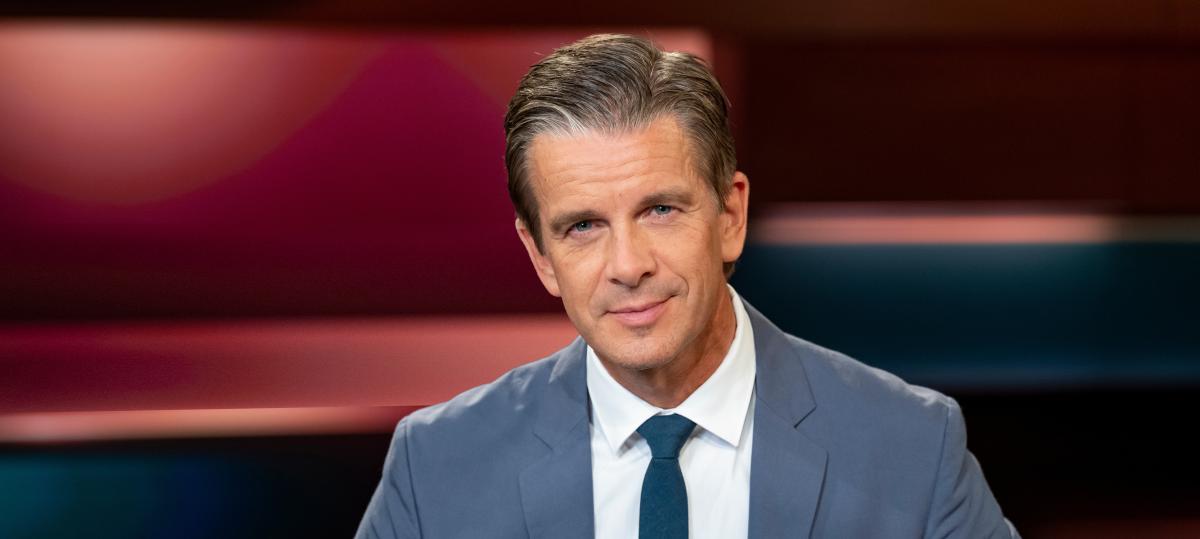France passed the « Help in Dying ». Euthanasia in the world
In some cases, the project provides for euthanasia – i.e. giving such a substance to the patient by a doctor. In both cases, it would be about patients whose disease is incurable and in advanced phase, causing impossible to ease suffering. The document has many opponents, especially among the far -right parliamentarians.
The topic of euthanasia causes hot discussions not only in France, but all over the world. The practice of active euthanasia, consisting in the fact that the doctor injecting the deceased person causing death is already used in many countries.
Active euthanasia, passive euthanasia, palliative care, « supported suicide »
There are many terms used to describe euthanasia and many of them cover. Let’s try to figure it out.
There are two main types of euthanasia: active and passive. Active euthanasia It occurs when a doctor or other health care worker gives a person to death. Passive euthanasia It consists in disconnecting a person from life support devices (e.g. a respirator).
One of the most controversial types of active euthanasia is « Supported suicide« During such a procedure, the person is subject to a deadly drug prescribed by a doctor.
Palliative care It often appears in discussions about euthanasia – sometimes as an alternative, and sometimes as an additional element of care for people struggling with a serious illness. Palliative care This is a set of procedures and practices that aim to improve the quality of life of people suffering from incurable diseases.
Active euthanasia is currently forbidden in France: a person who wants to die cannot ask the doctor to give a deadly dose of the drug. According to French law, a health care worker who agrees to such an act is considered a murderer. The doctor also has no right to prescribe a deadly medicine who will be able to take himself.
History of debates on euthanasia in France
At the same time, there is a « alternative » for euthanasia in France. In 2016, French legislators adopted a law enabling « deep anesthesia until death » to people suffering from serious diseases whose life expectancy is short.
This treatment consists in putting the patient into a state of pharmacological coma, administration of painkillers, and then stop serving other drugs, food and drink. Theoretically, death occurs painlessly and lasts several hours or days.
This agent, however, seemed insufficient to the French and in 2022. President of the country Emmanuel Macron announced the need to change the regulations. The Council Ethics Office (CCNE) became interested in this issue. Experts expressed rather restrained views on euthanasia, while putting emphasis on palliative care.
After the discussion about euthanasia in France became a public matter, discussions with the participation of ordinary citizens were taking place in the country for several months. A total of 184 people from different age groups with different levels of income and education were selected to participate in discussions. In 2023, a group of citizens also came to the conclusion that the provisions regarding euthanasia should be supplemented. Then the deputies submitted to the parliament an appropriate bill for consideration.
The debate on the bill was interrupted in 2024, when Macron ordered the dissolution of the National Assembly. This decision was related to the victory of right -wing forces in elections to the European Parliament.
In January 2025, French Prime Minister François Bayrou proposed to divide the bill into two parts to separately consider proposals for palliative care and euthanasia.
A week ago, on May 20, MPs voted on one of the articles of the euthanasia act, which determined the criteria for receiving such assistance. The first criterion approved by MPs was age – 18 years. MPs of the left -wing party « France Insoouze » proposed a reduction in age to 16 with the consent of parents or legal guardians, but this amendment was not accepted.
Citizenship was the second point of discussion. Are only the French to « help in dying »? According to the decision of the deputies, this right is entitled to both French citizens and owners of residence permits. « Suicide tourism », which is possible, for example in Switzerland, Belgium and the Netherlands, will not be allowed in France.
The third point of the discussion concerned the definition of the phase of the disease in which a person can qualify for « assisted dying ». Many parliamentarians believe that the term « advanced phase » of the disease is too vague and does not fully explain when exactly this phase begins. The result of the discussion was the adoption of a formula characterizing « advanced phase » as « entering into an irreversible process that is characterized by a deterioration of the health of a sick person, which affects the quality of his life. »
Opponents of this wording argued that its acceptance could mean that even people who could live « for a few more years » could be euthanasia.
Another point for which parliamentarians voted was the « level of suffering » of a person asking for help in dying. According to MPs, to qualify for euthanasia, a person must « experience physical or mental suffering », which « cannot be treated or which a person considers unbearable. » However, the presence of « purely mental suffering » will not be considered a sufficient criterion to perform the procedure.
The last point that the MPs voted for was the requirement that the person applying for euthanasia to be able to freely and consciously express such will.
The act on the « end of life » in the French press is sometimes called the Falorni Act, from the name of its author, Olivier Falorni, a left -wing deputy from the Modem party (Democratic Movement). Falleri calls the right to death, which he proposes, « freedom. »
« This is not about » killing « children or people with depression, » explained the MP in an interview with Radio Europe 1. « We are talking about that every adult suffering from an incurable disease in an advanced or terminal stage and causing suffering to be unbearable.
In addition to the wavy, the initiative is supported by President Macron and his Renaissance party, as well as left -wing political parties – France Insoouze and Greens – who consider the right to euthanasia as a matter of freedom and dignity.
This is opposed to French Prime Minister François Bayrou, an informal leader of the far -right party, the National Assembly of Marine Le Pen and the far -right politician and leader of Reconquist Eric Zemour. The main arguments against the draft law relate to the religious interpretation of the sanctity of life, as well as to fear that people in a difficult situation may fall victim to manipulation.
Euthanasia in the world and « suicide tourism »
The bill described above assumes that a person will have the opportunity to independently take a « fatal medicine » or ask the doctor to give the necessary medicine. The second option raises more controversy in society.
In response to the criticism of the bill, the French Health Minister Catherine Vautrin, which is more likely to support the initiative, if strict rules arise, she stated that no doctor would be obliged to conduct euthanasia if it is not in accordance with his beliefs.
The practice of active euthanasia, consisting in the fact that the doctor injecting the deceased person causing death is already used in many countries. The first country that legalized this procedure was the Netherlands in 2002. There are several requirements for active euthanasia: a request to carry out the procedure must be submitted without pressure, the patient must feel suffering, and the doctor together with the patient must come to the conclusion that there are no alternative methods of improving the condition. In 2023, the amendment to the Euthanasia Act endured age restrictions.
Since 2002, euthanasia has also been legal in Belgium. A few years later, the minimum age entitling to undergo surgery was also abolished. Later, the Belgian Federal Commission for Monitoring and Euthanasia Assessment published a report on three juvenile euthanasiums conducted in 2016-2017: they were 9, 11 and 17 years old. A nine -year -old suffered from cystic fibrosis, and the eleven -year -old had a brain tumor. The oldest child suffered from muscle dystrophy.
Euthanasia is also allowed in Luxembourg, Colombia, Canada, Spain, New Zealand, some US and Australia.
Sometimes, to voluntarily end their lives, people are forced to go to another country where euthanasia or « suicide supported by a doctor » are allowed. Switzerland has been one of the most popular directions of this type of travel for many years.
Active euthanasia is prohibited in Switzerland, but the doctor has the right to prescribe a « fatal medicine » to the person who will take it himself. The Swiss legalized « suicide assisted by a doctor » as early as 1941, becoming the first country in the world that he allowed for such a means on its territory. In addition, Swiss law does not impose any restrictions due to citizenship, illness or health of a person.
For several decades, clinics specializing in the performance of « suicides assisted by a doctor » have been operating in Switzerland.
In 2020, one of such clinics, Dignitas, helped to die 3248 people, most of whom were foreigners. At the same time, according to the data of the Statistical Office of Switzerland, in the same year 1251 citizens of the country decided to end their lives with the help of doctors.
Last year, 53-year-old Paola Marra, from London, died in Switzerland at a specialist clinic. A few months earlier, a woman was diagnosed with colorectal cancer at a terminal stage. In Great Britain, where Marra lived, euthanasia and other forms of « assisted dying » are illegal. After the death of a woman, the British Organization of Human Rights Dignity in Dying, who is in favor of the legalization of euthanasia, published an interview with Marra, recorded before her trip to Switzerland. The woman wrote in it that for several years she has been struggling not only with colorectal cancer, but also with breast cancer.
« There is no cure anymore. I am at the end of the road. I am tired. I have been going to therapy for seven years. And I have no strength. Treatment of cancer is very difficult. I lost many organs and I feel pain most of my time. I will die. And I would like to decide when and how it will happen, » says the woman on the recording.
The article was based on the translation of the text from Nowaya Gazeta Europe. Its author is Varvara Platova
Thank you that you have read our article to the end. Stay up to date! Watch us in Google news.





